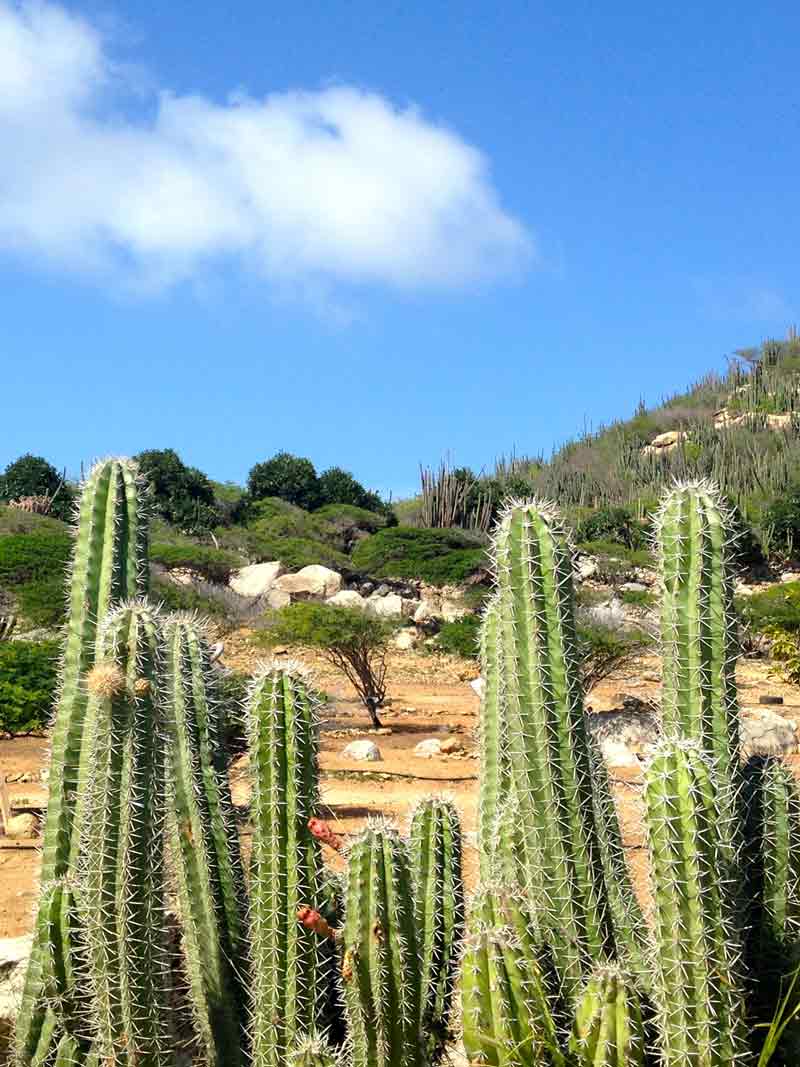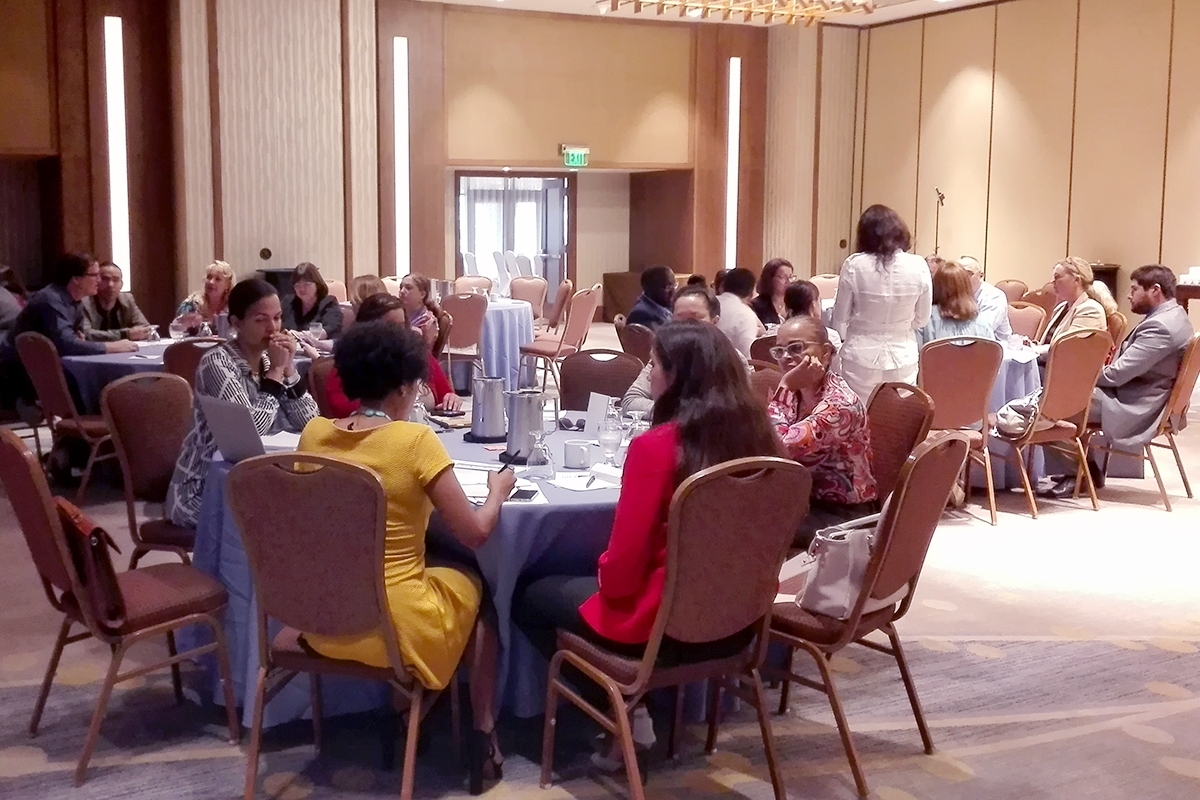Our team visited Aruba to present the results of the rapid destination diagnostic and meet with local stakeholders to map out a more sustainable future for the tourism industry
Header image by David Kirsch / flickr
Located just north of Venezuela in the southern Caribbean, Aruba is a small island spanning only 70 square miles (181 square kilometers). While just over 100,000 people call the island ‘home’, these inhabitants are by no means the only people you’ll find on the island. Though Aruba may be small, its allure is mighty. The constant sunshine, long stretches of white-sand beaches, and cool trade winds attract millions of visitors to Aruba’s shores year after year. In 2015, over 1.8 million people visited the island and took part in activities such as diving, kite-surfing, and exploring the desert-like hills of Arikok National Park.
Given the small size of the island and the limited availability of natural resources, local stakeholders felt a need to determine how the tourism industry could more positively impact the environment and local community. With the aim of encouraging greater collaboration and planning around sustainable destination management, Aruba joined the Sustainable Destinations Alliance for the Americas (SDAA) in 2016.



Eagle Beach/Unsplash; Arikok National Park by Christina Leigh Morgan / flickr; Tourists in downtown Oranjestad by Roberto Maldeno / flick
Identifying the issues and taking action
We began our work in Aruba last year with an initial onsite diagnostic in October 2016. During this first visit, we had the opportunity to meet with over 50 stakeholders from the government, businesses, and local community. By listening to their insights and seeing the island’s key tourism sites in-person, we were able to gain a better understanding of the current sustainability status of Aruba’s tourism industry. At the start of the new year, we returned to Aruba for a second time to share the diagnostic results with local stakeholders and to help them outline the next steps they’d like to take.
Over 35 stakeholders, including representatives from the Aruba Tourism Authority, local hotels and tour operators, and other government entities, gathered for the workshop we hosted in Oranjestad. We began the workshop by presenting the diagnostic results. Remember how we said over 1.8 MILLION tourists came to Aruba? While these millions of tourists were exploring the island and pumping their dollars into the local economy, they also used energy, created waste and used thousands of liters of drinking water. The results of the diagnostic highlighted the different sustainability issues that we discovered within the tourism industry in Aruba. Some of these issues were inefficient waste management, poor visitor management and monitoring, and low community involvement within the industry.
Following the presentation of the results, we facilitated a discussion and action-planning activity. When asked which of the sustainability issues were the most important to them, there was resounding agreement among the attendees that dealing with the island’s waste should be one of the top priorities. Waste is a major problem affecting the island, especially since the current landfill is reaching its limit. One issue attendees cited was the occasional waste burning that occurs in the landfill. This causes air pollution and poses an environmental and health risk. Not only does the lack of a sustainable waste model waste negatively affect the visitor experience, but it also harms the island’s marine life and affects the quality of life of Aruba’s residents.
Participants were then tasked with coming up for ideas about what action should be taken to address the waste issue. They discussed the pros and cons of having an incinerator, converting the waste into gas so that this energy could be used, and increasing recycling capacity. All of these options need careful analysis and the involvement of other players, so these will be the next steps to ensure that Aruba manages its waste in an appropriate manner.



Local destination stakeholders attended an action planning workshop in January 2017
Priority Action Projects
In addition to the sustainable waste processing project, the participants identified three additional priority action projects during the workshop:
Development of sustainability tourism standards: This project involves designing and implementing a set of guidelines for tourism sector providers including tour operators, restaurants, accommodation, tour guides, and transport providers. The creation of these standards will help ensure that tourism activities are performed in a manner that is safe, environmentally responsible, respectful of heritage and beneficial for the local communities.
Creation of a formal watchdog platform for the Destination Development Plan/SDAA actions: This project will establish a multi-stakeholder destination stewardship council that will enforce existing laws and policies as well as oversee the long-term implementation of the destination action plan. This watchdog platform will help to protect Aruba’s natural and cultural resources by improving the management of tourism sites and mitigating negative tourism impacts.
‘Bario Boost: Mi Dushi Bario’: This project will set up participatory platforms in each bario (neighborhood) that will give communities the opportunity to take part in tourism-related planning and decision-making. These platforms will also help to increase resident pride and awareness of their role in the tourism value chain.
While these changes won’t happen overnight; the progress that destination stakeholders have made so far in developing an action plan is undoubtedly a step in the right direction. We look forward to continuing our work with Aruba and helping them make this vision a reality.

